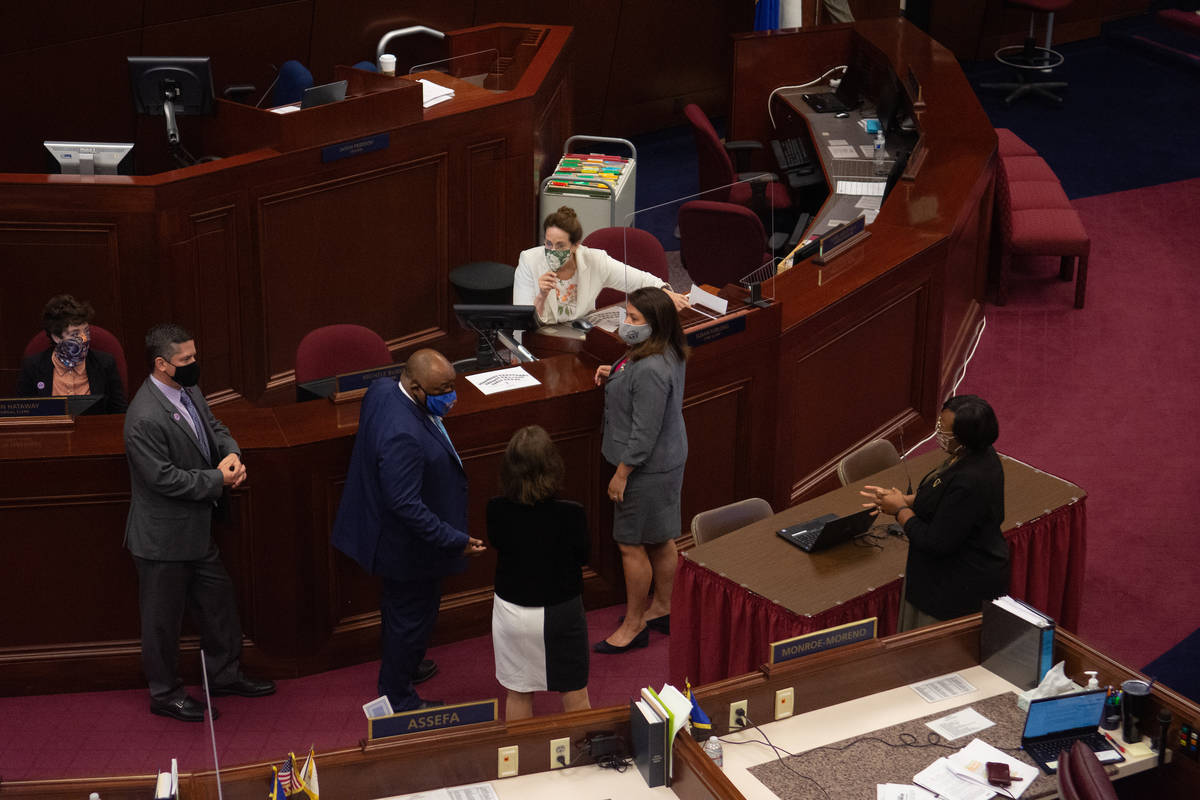
School districts will not get legal immunity from COVID-19 lawsuits and could be held liable if public school teachers, employees or students were to contract the virus under an amended bill on business and worker protections that passed the Senate on Wednesday.
The bill now moves to the Assembly, where it is expected to pass later Wednesday, bringing the Legislature’s second special session to a close.
The original version of Senate Bill 4 granted most businesses, government organizations including school districts and nonprofits limited immunity from lawsuits brought by customers, employees or others so long as they adhered to any controlling health measures in effect. Most hospital entities were excluded from the original bill.
Under the amendment, school districts would also be excluded from those protections, a change that came after several Democrats privately bristled at granting districts immunity from lawsuits amid the coronavirus pandemic.
A divided Senate approved the amendment and the bill on a 16-5 vote, with four Republicans joining the Democratic majority in support and one Democrat breaking ranks to oppose.
Help for workers
“As we’re looking at coming into the fall and then the holiday season, knowing that unemployment in our state is going to be at record highs, we should be focusing on finding ways to help people re-enter the labor force. This bill does that,” said Sen. Ben Kieckhefer, R-Reno. “And while I could find a couple of easy ways to vote no, getting people back to work will get me to yes every day of the week that ends in ‘Y’ and twice on Sunday.”
Other Republicans voting for the measure with Kieckhefer were Sens. Heidi Sievers Gansert, R-Reno, Scott Hammond, R-Las Vegas, and Keith Pickard, R-Las Vegas. Democrat Sen. Marcia Washington, D-North Las Vegas, who often departs from her caucus on votes, opposed it.
During hearings on the bill this week, teachers and school unions spoke out against granting school districts protections. Nevada State Education Association President Brian Rippet credited those teachers who spoke out for helping tip the scales and called the amendment an “important win for educators throughout the state of Nevada as we head back to school.”
“NSEA could not have achieved this outcome without the effort of our members who sent over 1600+ emails in a few short days and provided thoughtful and passionate testimony at 1:30 in the morning in order to ensure that this limited liability proposal was removed from Senate Bill 4,” Rippet said in a statement.
In the Senate on Wednesday, lawmakers said the amendment was a sop to the teachers union, would prevent schools from reopening, and amounted to lawmakers picking and choosing which workers should get enhanced COVID-19 protections.
“This should have been blanket liability coverage, every school district, every hospital, not some,” said Sen. Pete Goicoechea, R-Elko. “I will be opposing the bill and I ask you to do the same. It needs to be across the board.”
Certainty for businesses
But Sen. Chris Brooks, D-Las Vegas, said the bill would not eliminate existing protections from liability for businesses, medical workers, schools or employees covered by workers compensation rules while also expanding protections to other workers.
The bill “provides the certainty to small businesses and taverns and barbershops and Main Street all across Nevada, as well as to the resort industry that is the economic engine of our state, but it also provides that certainty to the workers that are in those businesses on what their protections are and what their rights are,” Brooks said.
Underscoring the critical importance of the resort sector to the state’s economy, Brooks added that the bill “tells the whole planet that the entertainment capital of the world cares deeply about its workforce and their families, and it cares deeply about the safety of the millions of patrons that come and visit our state every year.”